最近的PHP项目中,需要用到画图和图片拼接效果,这里是一些开发过程里用到的一些点还有就是一些踩过的坑。通过ImageMagick生成base64图片格式,为前端所使用。
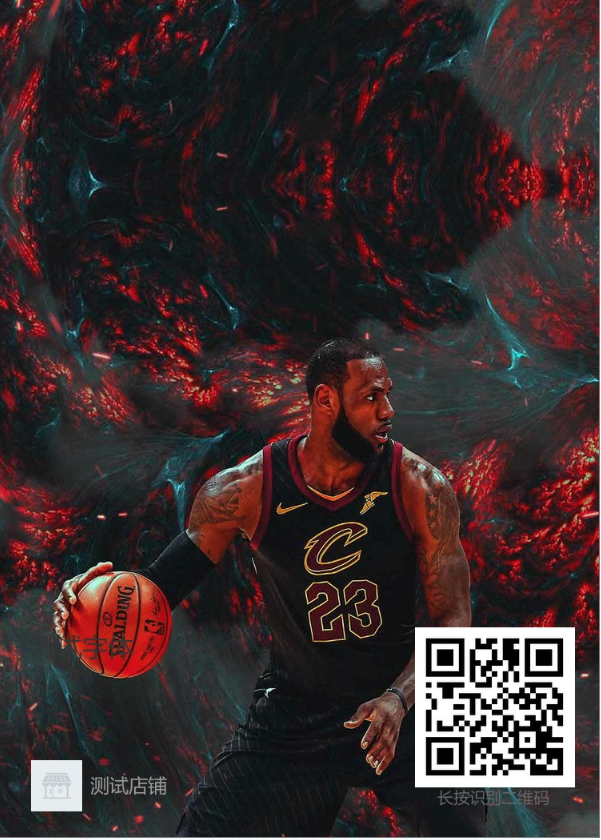

一些需要的知识点
PHP将图片转base64编码以及base64图片转换为图片并保存代码
图片转base64编码
/*图片转换为 base64格式编码*/
$img = 'uploads/about.png';
$base64_img = base64EncodeImage($img);
echo '<img src="' . $base64_img . '" />';
function base64EncodeImage ($image_file) {
$base64_image = '';
$image_info = getimagesize($image_file);
$image_data = fread(fopen($image_file, 'r'), filesize($image_file));
$base64_image = 'data:' . $image_info['mime'] . ';base64,' . chunk_split(base64_encode($image_data));
return $base64_image;
}
base64图片转换为图片并保存
/* base64格式编码转换为图片并保存对应文件夹 */
function base64_image_content($base64_image_content,$path){
//匹配出图片的格式
if (preg_match('/^(data:\s*image\/(\w+);base64,)/', $base64_image_content, $result)){
$type = $result[2];
$new_file = $path."/".date('Ymd',time())."/";
if(!file_exists($new_file)){
//检查是否有该文件夹,如果没有就创建,并给予最高权限
mkdir($new_file, 0700);
}
$new_file = $new_file.time().".{$type}";
if (file_put_contents($new_file, base64_decode(str_replace($result[1], '', $base64_image_content)))){
return '/'.$new_file;
}else{
return false;
}
}else{
return false;
}
}
echo base64_image_content($base64_img,"uploads/");
base64
Base64是一种用64个字符来表示任意二进制数据的方法。 Base64的原理很简单,首先,准备一个包含64个字符的数组:
['A', 'B', 'C', ... 'a', 'b', 'c', ... '0', '1', ... '+', '/']
然后,对二进制数据进行处理,每3个字节一组,一共是3x8=24bit,划为4组,每组正好6个bit
如果要编码的二进制数据不是3的倍数,最后会剩下1个或2个字节怎么办?Base64用\x00字节在末尾补足后,再在编码的末尾加上1个或2个=号,表示补了多少字节,解码的时候,会自动去掉。
使用jpg图片体积要比png小 使用PHP的Imagick类进行图像的操作
Imagick具体操作
(1).创建一个底图,宽750px,高1046px,白色背景,格式为jpg的图片
// 初始化一个画板
$img =new Imagick();
$img->newImage(750,1046,'white','jpg') ;
(2).在底图上添加需求图片
前提是我们已经知道了需要合并的图片链接地址
$item_img='https://img.alicdn.com/bao/uploaded/i1/1750208593/TB1rgM3hhtnkeRjSZSgXXXAuXXa_!!0-item_pic.jpg'
第一步:实例化图片
$imgtwo = new Imagick($item_img);
第二步:设置添加图片的大小
$imgtwo->resizeImage(750,764,Imagick::FILTER_LANCZOS,1);
关于resizeImage参数说明
bool Imagick::resizeImage ( int $columns , int $rows , int $filter , float $blur [, bool $bestfit = false ] )
参数:
● columns 图片的宽度
● rows 图片高度
● filter 过滤器,用于过滤图片,有高斯filte根据情况而定
● blur blur=1 为虚化, blur =-1 为锐化
第三步:与底图合并
$img->compositeImage($imgtwo,$imgtwo->getImageCompose(),0,0);
使用compositeImage();
bool Imagick::compositeImage ( Imagick $composite_object , int $composite , int $x , int $y [, int $channel = Imagick::CHANNEL_ALL ] )
参数:
● composite_object :用于合并的图片的Imagick对象
● composite:合并操作,定义操作常量。 具体请查看 合并操作常量列表
● x:相对图像顶点左上位置(0,0)的横坐标
● y:相对图像顶点左上位置(0,0)的纵坐标
● channel:通过传入一个通道常量,来开启通道模式。为了支持多个通道,可以通过二进制运算的操作来合并多个通道常量。
到这里就可以得到一个合并的图片了
1、加一个header信息,可以直接在网页上查看图片
header("Content-Type: img/png");
echo $img;
2、可以把图片在指定目录中生成,在指定目录下生成为img.png
$file="./img.png";
$img->writeImage($file);
我这里是这样处理:
header ( 'Content-type: ' . strtolower ($img->getImageFormat ()) );
$type = strtolower($img->getImageFormat());
$dest_img='/data/tmp/' . md5(microtime(true)).'.'.$type; //要生成的图片的路径,随机生成图片名称
(3).图片上拼接文字
写入文字以添加店铺文字为例,逐步完成文字的写入。
$shop_title='测试店铺';
// 添加店铺文字
$drawQr = new ImagickDraw(); // 实例化ImagickDraw
$drawQr -> setFillColor(new ImagickPixel('#999999')); // 颜色
$drawQr -> setFontSize('24'); // 大小
$drawQr -> setFont('../../conf/Microsoftyahei.ttf'); // 字体
$drawQr -> setTextAlignment(Imagick::ALIGN_LEFT); // 字体方向
// ps: Imagick::ALIGN_RIGHT 朝右边 Imagick::ALIGN_LEFT 左边 Imagick::ALIGN_CENTER 中间
$drawQr -> setTextEncoding("utf-8"); // 字体编码
$drawQr -> annotation(114,990,$shop_title); // 画出文字
$img -> drawImage($drawQr); // 画在地板上
详细解读:
- 1、实例化ImagickDraw类:
$drawQr = new ImagickDraw(); - 2、设置字体颜色
$drawQr -> setFillColor(new ImagickPixel('#999999')); - 3、设置字体大小
$drawQr -> setFontSize('24'); - 4、设置字体格式
$drawQr -> setFont('../../conf/Microsoftyahei.ttf'); - 5、设置字体方向
$draw->setTextAlignment(Imagick::ALIGN_RIGHT);
ps: Imagick::ALIGN_RIGHT 朝右边 Imagick::ALIGN_LEFT 左边 Imagick::ALIGN_CENTER 中间
- 6、设置字体编码
$drawQr -> setTextEncoding("utf-8"); - 7、画出文字
$drawQr -> annotation(114,990,$shop_title); - 8、在底图上写入字体
$img -> drawImage($drawQr);
写入文字这个地方的一些坑:
没有设置字体格式时,中文字会解析错误 (英文没有问题)
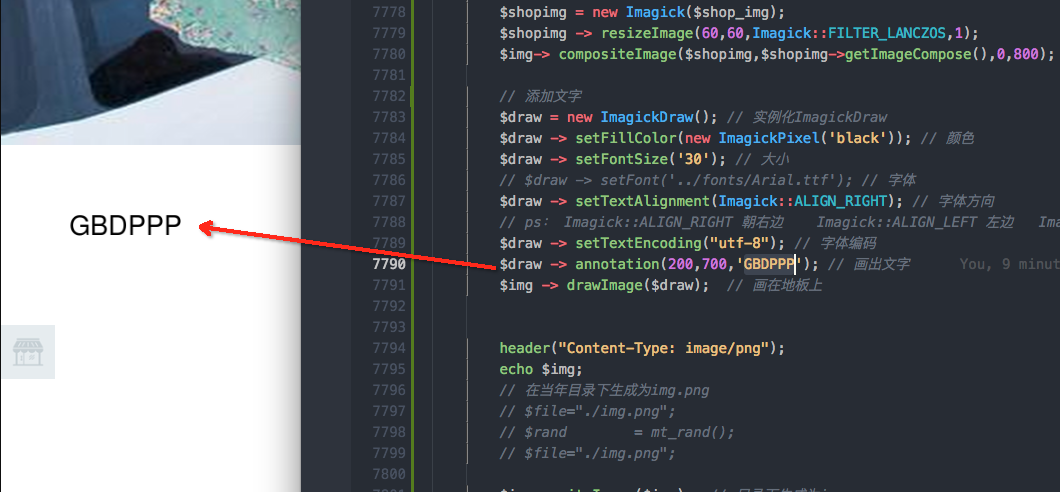
(汉字解析失败)
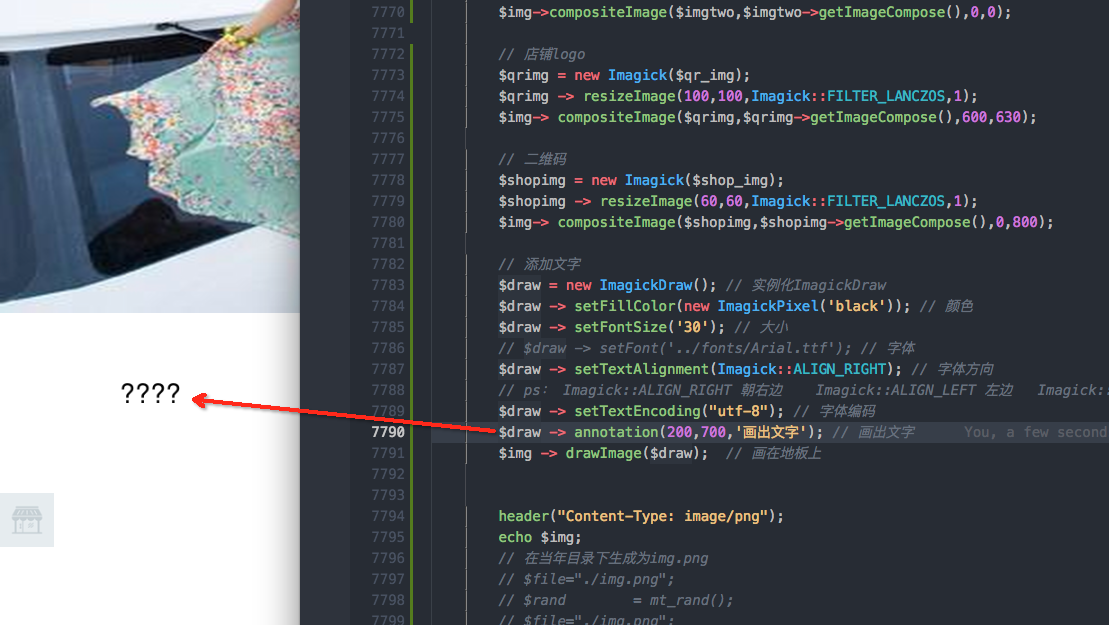
(设置字体格式正常显示)
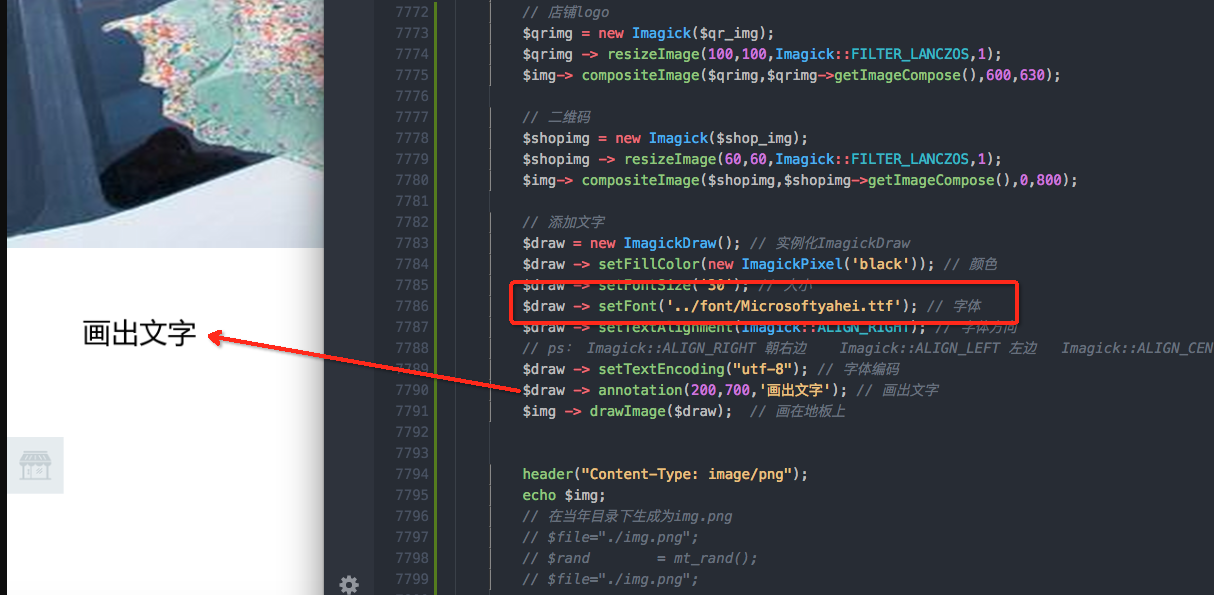
(4).图片base64导出
最终得到的图片我们组要以base64的格式传递给前端,进行以下操作,把我们最后拼接的到的图片base64转换输出。
$dest_img='/data/tmp/' . md5(microtime(true)).'.'.$type; //要生成的图片的路径
$Return = array();
// *图片转换为 base64格式编码*
$base64_image = '';
$image_info = getimagesize($dest_img);
$image_data = fread(fopen($dest_img, 'r'), filesize($dest_img));
$base64_image = 'data:' . $image_info['mime'] . ';base64,' . chunk_split(base64_encode($image_data));
$Return['data']=$base64_image;
return $Return;
$base64_image就是base64格式的图片。
需要注意的是前端得到的额base64数据里包含有'\r\n'回车字符,需要特殊处理才可以正确显示图片。
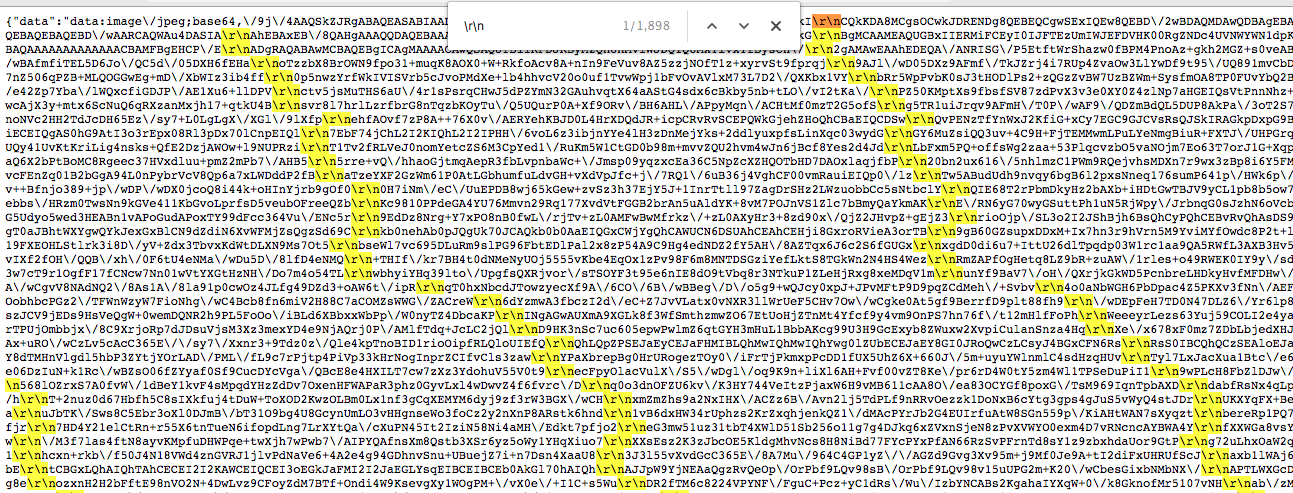
(最后得到的合并图片)
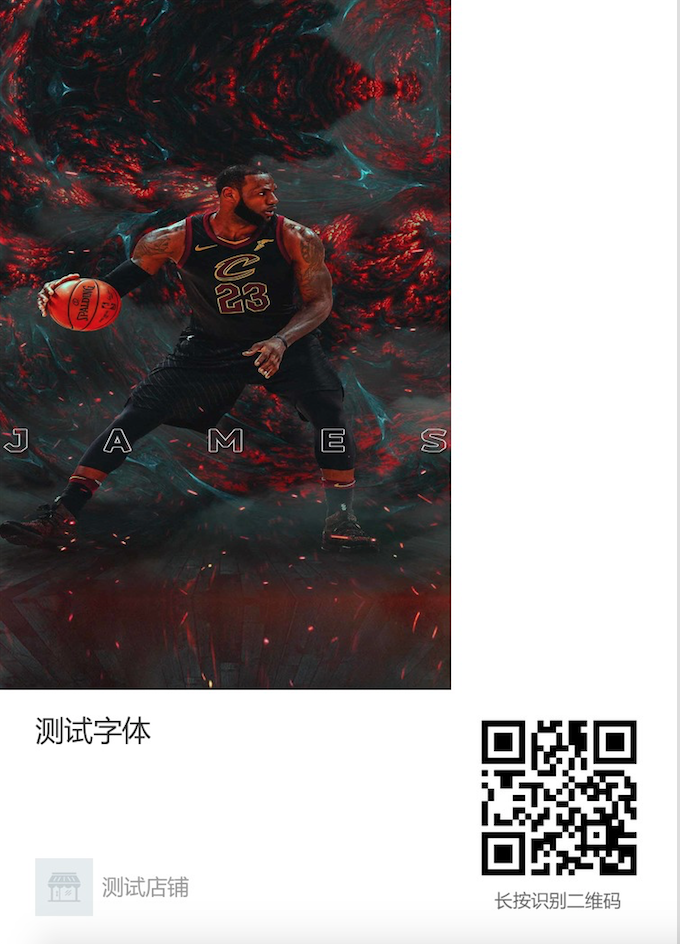
(调整拼接图片大小得到不同的图片)

最后来一组单打詹!!!
觉得喜欢欢迎关注,start